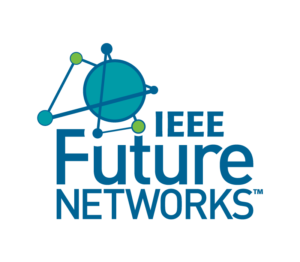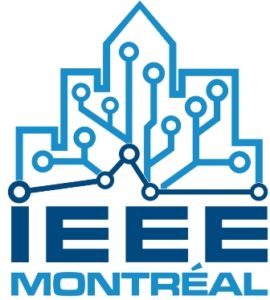14 October 2022 // 16:00 – 17:30 // Virtual
SCOPE
Research on the sixth generation of mobile communications (6G) is currently the subject of many national research programs around the globe. It can be witnessed, that 6G visions are majorly inspired by the evolution of 5G campus networks, but also take into account new THz JCAS enabling access networks, as well as Non-Terrestrial Networks (NTNs), which put due to their differences` extreme requirements on the future 6G end-2-end network design. In addition, the rise of Open RAN and the foreseen disaggregation and aggregation by the purpose of functionalities, combined with the desire for digital sovereignty, performance, resilience, and energy efficiency is demanding sophisticated orchestration and management capabilities, which will strongly rely on deeply integrated AI/ML.
This tutorial will look on the design of a flexible end-to-end organic 6G architecture able to glue together the RAN and core control functions with different access and backhaul networking technologies for supporting the many divergent 6G application domains including the new mobile and nomadic network node deployments.
The FOKUS Open5GCore roadmap will be utilized to show the impacts of organic networking concepts on the 5G evolution towards 5G advanced and beyond.
The tutorial contents is mainly based on the results and experiences gained within the German BMBF 6G Hub project “Open6GHub” (https://www.open6ghub.de/en/) in which Fraunhofer FOKUS and TU Berlin are responsible for designing and developing a highly flexible, adaptive and resilient network infrastructure integrating the various access network technologies into a holistic system, inspired by the current discussions on RAN-Core convergence and flexible network function disaggregation and aggregation motivated by fully exploring the Open RAN concepts.
Keywords: 5G Evolution, RAN-Core Integration, Organic Network, THz, NTN, 6G Core, 6G Data Layer, AI/ML for 6G
TUTORIAL OUTLINE
The tutorial is structured into three blocks plus a decent Q&A part.
- Requirements for the Organic Network Design
- Potential 6G applications as drivers and emerging business models
- Access network diversity and complexity
- Open RAN impacts driving innovation by modularization and openness
- DevOps and CD/CI impacts to cope with adaptations and extensions during operation
- Deep integration of AI/ML for integrated zero touch deployment, optimization, and management
- Initial Organic Network Architecture Definition
- Beyond the 5G SBA with web service principles for organic growths
- RAN-Core Integration for organic customization
- A new Data Layer enabling organic management
- Support for infrastructure(less) operation
- AI-based orchestration and management of organic networks
- Implementation steps towards an organic network core
- Open6GHub project overview
- Open5GCore use case examples and roadmap
- Q&A
SPEAKERS
Thomas Magedanz, TU Berlin / Fraunhofer FOKUS, Germany
Short Bio: Thomas Magedanz (PhD) has been professor at the Technische Universität Berlin, Germany, leading the chair for next generation networks (www.av.tu-berlin.de) since 2004. In addition, since 2003 he has been Director of the Business Unit Software-based Networks (NGNI) at the Fraunhofer Institute for Open Communication Systems FOKUS (www.fokus.fraunhofer.de/go/ngni) in Berlin. For 33 years Prof. Magedanz has been a globally recognized ICT expert, working in the convergence field of telecommunications, Internet and information technologies, understanding both the technology domains and the international market demands. His interest is in software-based networks for different verticals, with a strong focus on public and non-public campus networks. His current interest is in the evolution from 5G to 6G. For more details look here: http://www.av.tu-berlin.de/menue/team/prof_dr_thomas_magedanz/
Marius Corici, TU Berlin / Fraunhofer FOKUS, Germany
Short Bio: Marius Corici (Dr. Eng.) is a senior researcher at the Fraunhofer FOKUS Institute. He has received his Diploma-Engineer degree at the ― Politehnica University of Bucharest on Nomadic Satellite-Based VoIP Infrastructure. He joined the Next Generation Network Infrastructures (NGNI) competence center of Fraunhofer FOKUS Institute, now renamed as Software-based Networks Division. He has received his Doctoral Degree in 2013 on Self-Adaptable IP Control in Carrier Grade Mobile Operator Networks. Currently, he is the deputy head of the Software-based Networks business direction of Fraunhofer, leading the research and development teams for the Open5GCore (www.open5gcore.org) and NEMI (www.nemi-project.org) toolkits and acting as a research pathfinder for the evolution towards vertical sectors and customization of massive core networks as well as the design and specification of novel beyond-5G features and 6G architectures. Furthermore, Marius Corici is acting as researcher at the Technische Universität Berlin and preparing the lectures on 5G as part of the department next generation networks (Architekturen der Vermittlungsknoten – AV) (www.av.tu-berlin.de).
Sign up for email alerts to get the latest news and announcements for the 2022 IEEE Future Networks World Forum. If you have specific questions, contact us at FNWF@ieee.org.



















